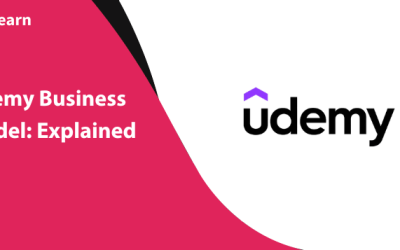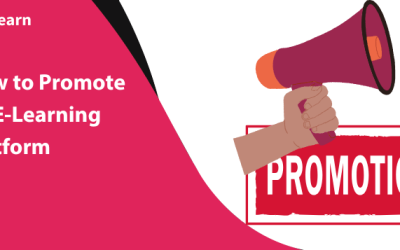How to Become a Leadership Coach: A Comprehensive Guide
Do you dream of establishing a six-figure leadership coaching business? Helping organizational leaders navigate change and uncertainty and elevate their business game is indeed a lucrative career to pursue!
Whether your clients are finding the next gear to unlock inherent confidence, want to attain clarity or connect with your team, leadership coaches need a purpose-driven strategy! This blog could be your ultimate guide on how to become a leadership coach, packed with innovative strategies and practical insights!
So, are you ready to help leaders unlock their potential?
What is Leadership Coaching?
Leadership coaching literally means assessing and improving the leadership and performance of “leaders.” The entire process is backed by behavioral science and enhances the skills of individuals across different organizational levels. These individuals could be managers, entrepreneurs, executives, or even C-level managers.
The coaching could be either one-to-one or delivered in group sessions aimed towards a common objective.
Given below are the benefits of leadership coaching:
-
Enhance Team Performance
“The success of an organization is defined by the effectiveness of its team.” Leadership coaches mold effective leaders to better manage their teams. This improves the team’s overall functionality and productivity and contributes to the organization’s vision.
-
High Productivity
Leadership coaches help professionals identify their strengths and weaknesses. They offer guidance in different areas, such as communication, goal setting, taking ownership and feedback mechanisms. This helps them work on their improvement areas and drive better results.
-
Better Organization Culture
A happy workplace is a productive one! Coaches help leaders realize that their actions directly impact the organization. They help leaders develop skills to reinforce positive behaviors, develop employees, build trust and motivate a learning environment.
-
Improve Conflict Resolution
Coaching trains leaders to take proactive action, such as active listening, empathy, and problem-solving, to better resolve conflicts.
Thus, a leadership coach helps individuals work towards the larger organization’s vision and goals. The final result: better revenue and business growth!
What Does a Leadership Coach Do?
Before delving into the step-by-step guide to becoming a leadership coach, let’s understand exactly what the role of a leadership coach is!
A leadership coach works with clients to reach their maximum potential:
Here are the key responsibilities of a leadership coach:
- Guiding leaders to identify their strengths and limitations
- Developing accountability for their actions
- Improving decision-making and emotional intelligence skills
- Building on communication skills
- Goal-setting, progress tracking and providing feedback.
- Helping to navigate through complex situations with problem-solving skills
- Delegate responsibilities and discover collaboration opportunities
How to Become a Leadership Coach: Step-By-Step Guide
The global executive and leadership coaching market was valued at $94.8 billion in 2024 and is expected to reach about $147.48 billion by 2029. Technological advancements and increased workloads have made workplaces more complex, leading to an increased demand for leadership coaches!
Want to build a successful business in leadership coaching?
Here’s a detailed seven-step process on how to become a leadership coach:
Step 1: Discover Your Niche
First, decide what kind of leadership coach you want to be! If you wish to stand out in the leadership coaching realm, you need a well-defined niche.
Narrowing your niche has its own advantages: attracting the right clients, targeted marketing strategies, and optimized coaching packages. Your niche is the sum of your skillsets, expertise, and passion. Understand the market trends and competitor services to choose a profitable niche that’s demanding enough!
Ask these questions to find the right niche:
- Do you have experience in any specific leadership skills?
- Are you specialized in coaching a specific clientele?
- Is there an existing industry gap that you wish to solve?
- What do you feel excited about in coaching?
Here’s a list of potential leadership coaching niches to scale your coaching business:
- Performance
- Change management leadership
- Team-building leadership
- Sales and lead-generation coaching
- Strategic planning and execution
- Leadership coaching for women
- Leadership coaching for startups, corporates, business owners
- Conflict Strategist and management
- Conscious leadership & spiritual leadership
- Sales Strategist & leadership coach
For example,

Nick Komodina specializes in conscious leadership & business, which is the USP of his coaching business.
🪄Pro Tip: Are you struggling to find a coaching niche? Here, we break down how to find a well-crafted niche.
Step 2: Earn a Certification
Once you have figured out a relevant niche for leadership coaching, you need the right experience to venture into coaching terrains!
Although certification isn’t mandatory, it boosts your credentials to start your coaching business.
A certification covers a diverse range of topics, from coaching techniques and models to even practical experience.
Let’s take a quick look at some popular leadership coaching certifications!
- ICF-Certified Coaching – Levels: Associate Certified Coach (ACC), Master Certified Coach(MCC), Professional Certified Coach(PCC)
- Harvard Leadership Courses
- Center for Creative Leadership Coaching Certification (CCL)
- Co-active Training Institute
- Marshall Goldsmith Stakeholder Centered Coaching
Decide on a coaching certification based on your niche, accreditation, budget, curriculum, and duration.
Step 3: Find Your Ideal Audience
Finding your ideal audience is an essential aspect that most coaches often overlook! People often think defining your ideal audience limits your earning potential because you are narrowing down your audience. But, it is actually easier to find your ideal clients!
Then, people can easily refer to and resonate with your business. Moreover, you can better craft your coaching package with an ideal audience. Look into the demographics, behavioral traits, and psychographics of your audience.
Ask these questions to decide what kind of clients you want to work with:
- What are the pain points and challenges your clients are dealing with?
- Does your audience exhibit specific demographic characteristics – age, gender, income, profession, marital status?
- Which social media profiles do they typically use?
- Are they looking for any higher career prospects or promotions?
- Do they work with a startup, small or large corporation?
Use tools like surveys and Google Analytics to define your ideal persona.
Step 4: Gain Practical Experience
Each client is unique and requires a different coaching approach. If you want to be a successful leadership coach, credentials aren’t enough. You also need some real-world coaching experience!
Going pro bono will equip you to climb the mountains of coaching! It helps you gain practical insights, build confidence, and greater clarity on how to deal with different kinds of clients. While starting out, you can offer free coaching sessions to implement the strategies and techniques you have mastered until now.
These are different ways to gain practical experience before getting into business:
- Practice internships at non-profit organizations or companies for exposure to organizational culture and leadership challenges
- Host workshops, training and seminars to spread enough awareness about workplace ethics and culture
- Enroll with certifications or courses that allow you to gain hands-on practical experience once you learn the fundamentals.
- Coach in your workplace setting to gain practical insights and experience
- Shadow popular coaches in your niche and learn more about leadership styles, skills and methodologies.
Step 5: Define Your Coaching Package
Next, let’s move on to the most crucial step in how to become a leadership coach guide!
Your leadership coaching offer goes beyond a few coaching conversations. It is a kind of strategic partnership towards a well-defined outcome! The coaching packages could be one-to-one sessions, group programs, workshops or seminars, or even VIP coaching programs.
Here’s an easy 4-step process to create your coaching program:
Define a targeted outcome
First, define a tangible outcome to derive results. It could be based on your team’s performance, increasing revenue, building skills, increasing employee retention, etc.
Structure Your Coaching Package
Structuring your coaching package involves deciding the frequency, duration, and session length. The coaching program lasts for at least six months to one year. These sessions are held bi-weekly or weekly.
Deciding Coaching Methodology, Tools, and Techniques
Choose the right coaching model based on your client’s needs and goals. Deciding the right coaching methodologies, tools, and techniques work like magic!
Here are a few leadership coaching methodologies:
- GROW Model for goal-setting
- SCARF or TA for interpersonal challenges
- CLEAR Model for goal-setting
- Action Learning for problem-solving and workplace challenges
- Co-Active Coaching Model for emotional resilience
For example, you could add assessment tools like personality tests, strength assessments, and 360-degree feedback to create a tailored coaching program.
Provide additional coaching resources like ebooks, podcasts, webinars, and articles to enhance the coaching journey.
Outlining Your Coaching Process
To start the coaching process, you need to assess your client’s current situation. This helps tailor your coaching plan based on their vital areas of improvement. Evaluate their key performance metrics—sales figures, productivity rates, organization’s revenue, etc. Incorporate feedback from colleagues and team members to find their skill gaps.
Next, set long and short goals to achieve the expected outcome. Then, create an actionable plan by breaking down these goals into manageable tasks. Lastly, include regular feedback and progress tracking in your coaching process.
Step 6: Market Your Coaching Services
So far, so good — you have stumbled across your unique coaching niche, defined an ideal audience, and designed your coaching offer. Now, it’s show time — to shed some limelight on your coaching program. If you explore the right marketing strategies, you will attract the right coaching clients who convert!
Next, let’s spill some beans on some tried-and-tested marketing strategies:
- Leverage your existing network of family, friends, and colleagues to spread the word about your coaching services
- Offer free workshops and training across different workplace settings
- Attend in-person meetings and conferences to expand your network
- Create compelling business profiles on social media platforms like Instagram, LinkedIn, and X
- Create your own podcasts or interviews on niche-relevant podcast channels
- Use word-of-mouth marketing or referrals from acquaintances
- Build your email list with lead magnets and grow your business
- Create a YouTube channel sharing important coaching tips and tools
Step 7: Improve Your Coaching Skills
As a coach, you might hit stagnation at some point! Hence, it is essential to keep learning and continuously improve your coaching skills. Experiment with relevant coaching methodologies and techniques. Attend coaching training, seminars, and one-day workshops to stay up-to-date with the latest coaching trends in the industry.
Self-learning is a great way to update your skills. For personal growth and development, invest your time in popular coaching books, webinars, articles, newsletters, and podcasts. Take advanced certifications or courses related to your niche to boost your confidence and credentials.
Here are a few relevant resources to elevate your coaching proficiency:
- The Prosperous Coach by Rich Litvin and Steve Chandler
- The 7 Habits of Highly Effective People by Stephen R Covey
- Co-active Coaching: The Proven Framework for Transformative Conversations at Work and in Life
- Coaching for Performance by J. Whitemore
- Coach the Person, not the Problem by M. Reynolds
- The Coaching Habit by Michael Bungay Stanier
- The Business Accelerator Podcast
- The Gary Neville Podcast
- The 90th Percentile: An Unconventional Leadership Podcast
- Coaching for Leaders Podcast
Finally, your clients are your greatest teachers! You experience unique challenges, perspectives, and valuable insights from each client. Keep aside time at the end of each session for feedback. Ask questions or conduct surveys on how to make your coaching conversations more effective.
🪄Pro Tip: To enhance your coaching skills, take a look at the top 18 coaching books recommended by Coaching Tools Company.
What are the Essential Skills for Becoming a Successful Leadership Coach?
Want to become a leadership coach? You need a healthy blend of skills, traits and experience to become a leadership coach.
Let’s explore the critical skills to become an online coach!
-
Active Listening
One of the top coaching competencies, active listening, is an essential coaching skill. It helps you better understand your client’s challenges, needs and expectations.
-
Strong Communication Skills & Empathy
Effective coaching conversations are essential icebreakers! Coaches must be capable of asking powerful questions, conveying feedback, and providing their clients with an actionable plan.
-
Passion & Dedication
Coaching is a rewarding journey, but you must be equally passionate and committed to seeing results. You can only genuinely help your clients and win their trust with the right attitude.
-
Problem-Solving
A leader is the one who resolves conflicts, suggests new ideas and pushes the team to go forth! Coaches need to provide strategies for enhancing team-building and performance.
-
Experience with Diverse Cultures
As a leadership coach, you must work across countries and cultures. Adaptability and cultural sensitivity are crucial to building an inclusive culture.
Leadership Coaching Vs. Executive Coaching
Although leadership and executive coaching seem confusing, they are two different coaching types. Both help you develop leadership skills, but the approach adopted is different!
Executive coaching focuses on visionary leadership, strategic decision-making and organizational performance enhancement. Alternatively, leadership coaching focuses on skill development and team management. Leadership coaching is for leaders at different levels—managers, supervisors, and executives. In contrast, executive coaching is targeted towards C-suite executives.
Executive coaches motivate you to find your own path of self-improvement. Leadership coaching revolves around emotional intelligence. Speaking about objectives, a leadership coach revolves around self-awareness, team management, and emotional intelligence. Change management, decision making, succession planning are objectives of executive coaching.
What are the Challenges Faced By Leadership Coaches?
In coaching, you deal with real people and real problems. Hence, the road ahead could be bumpy.
If you are an aspiring leadership coach, being mindful of these challenges is good.
Here’s a list of possible generic coaching and niche-related issues:
- Resistance to Change: Leaders are often reluctant to adapt to a new leadership style or approach because it could be overwhelming.
- Misaligned Goals: Leaders might often have quite different goals from coaches. This mismatch could cause trouble during the coaching process.
- Defensive Leadership: Coaching a defensive leader is challenging. Feedback could be considered personal attacks. Present feedback in a positive way and practice active listening.
- Lack of Self-Awareness: As leaders climb the corporate ladder, they lack the self-awareness to identify their strengths and areas for improvement.
- Limited Time and Resources: Managers, C-level executives, and top organizational leaders have busy schedules. Dedicating a consistent time for coaching sessions often takes effort!
Successful Case Studies of Leadership Coaches
Are you struggling to craft your coaching offer? We have picked the best leadership coaches for some practical strategies and tips on becoming a better coach.
Here’s our curated list of the leading leadership coaches:
Marshall Goldsmith
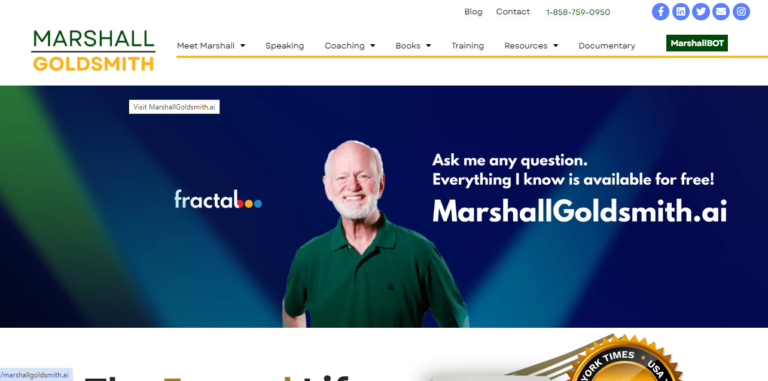
Marshall Goldsmith is known for his performance-based coaching pricing model.
With four decades of experience working with top CEOs and executives, Marshall Goldsmith needs no introduction! The only person to have won the Thinkers50 Award twice, Goldsmith is one of the top 10 business thinkers in the world. An executive educator, best-selling author, and renowned coach, he is a multi-hyphenate who masters multiple domains.
The leading executive coach’s clientele ranges from Ford to Pfizer, dispelling lessons on a human-centric leadership approach. He developed the 360-degree feedback theory, a significant leadership tool, that uses feedback from an individual’s colleagues, associates, and employees for performance evaluation.
Additionally, the Feetforward approach and “no pay unless you improve” are a few of his other significant contributions.
Areas of Expertise: Executive coaching, leadership development, behavior and habit change, employee engagement
Body of Work(Books): What Got You Here, Won’t Get You There, Triggers
John Mattone
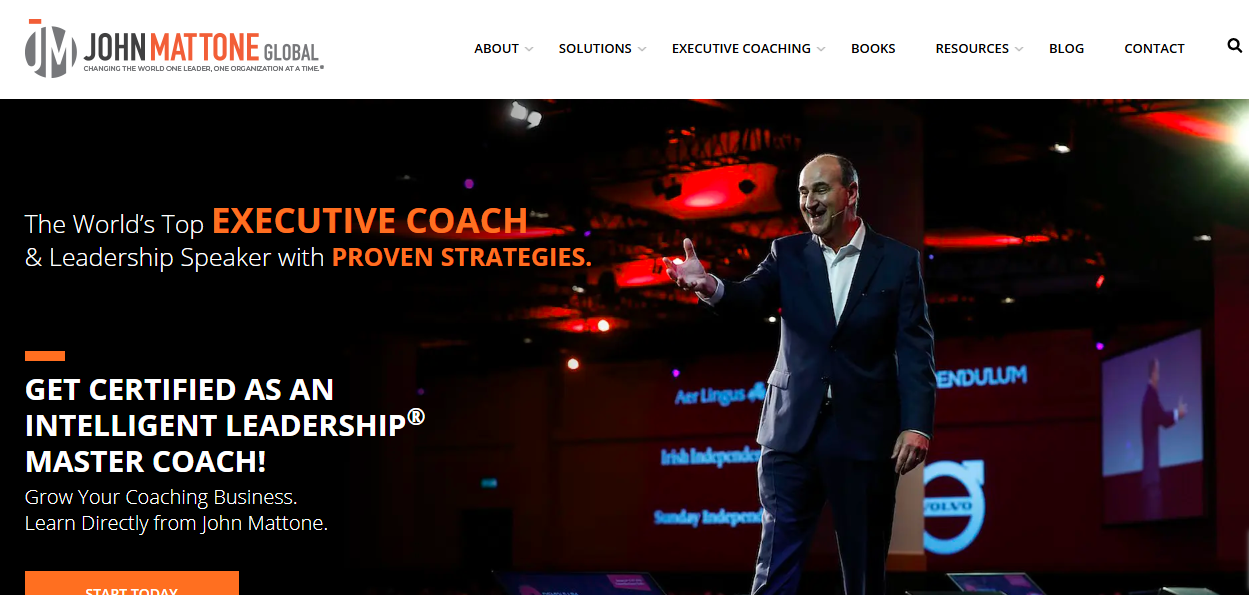
John Mattone’s Intelligent Leadership theory is one of the fundamentals of leadership development.
A globally acclaimed leadership expert, John Mattone is one of the top coaching leaders in intelligent leadership. He is one of the top 10 leadership authorities in the world and the founder of John Mattone Global, one of the top executive coaching companies.
Mattone’s leadership lessons focus on strategic thinking, emotional intelligence, and effective practices. From Roger Enrico to Steve Jobs, the leading executive has mentored 450 executive coaches across 52 countries. His proprietary “intelligent leadership” tools and philosophy focus on core principles and dimensions for individual growth.
Areas of Expertise: Organizational Culture, self-awareness, personal development, leadership vulnerability
Body of Work: Intelligent Leadership (Book), Cultural Transformations (Book), The Wheel of Intelligent Leadership (Theory)
Tony Robbins
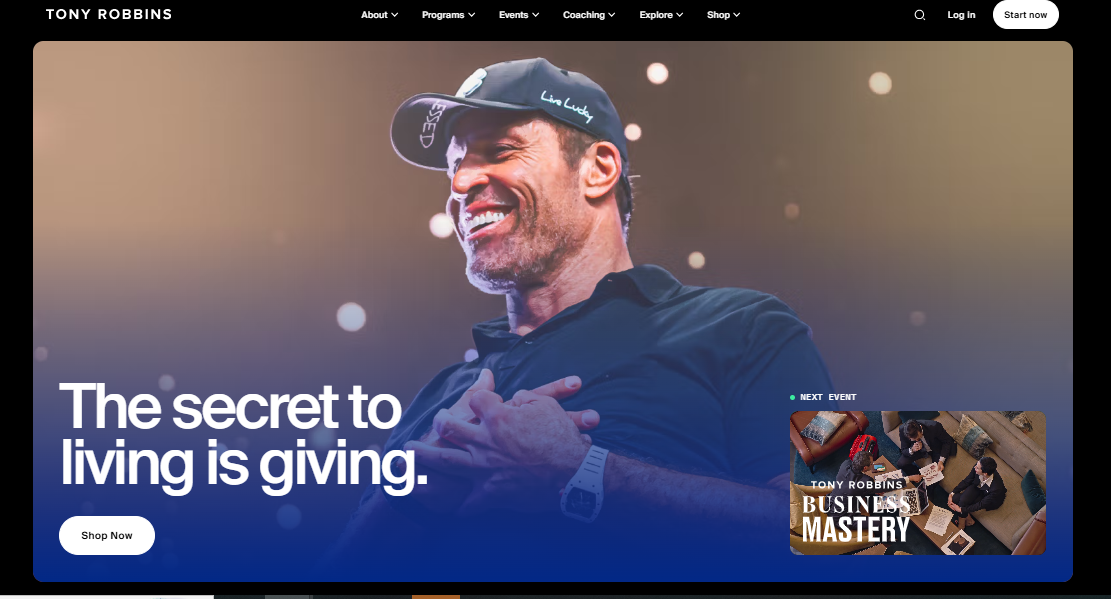
Tony Robbins helps individuals and organizations achieve their maximum personal and professional potential.
Tony Robbins is indisputably a titan in the leadership coaching industry. He has built a multi-billion dollar coaching empire with the gospel of self-improvement. One of the top business and life strategists, best-selling author, entrepreneur and philanthropist, Robbins dons multiple hats simultaneously.
He is one of top business leaders in the world as per American Express. From Marc Benioff and Bill Clinton to Serena Williams, Robbins has a rich portfolio across diverse industries.
Robbins is known for delivering his leadership lessons through dynamic and energetic training and seminars. Some of his popular programs are “Unleash the Powers Within,” “Business Mastery,” and “Date with Destiny.” On the other hand, his best-selling books are “Awaken the Giant Within,” “Money Master the Game,” and “Unleash the Power Within.”
His coaching emphasizes emotional intelligence, peak performance, personal empowerment, and strategic thinking.
Expertise Areas: Personal development, leadership development, peak performance, relationships, business and entrepreneurship
Body of Work: Neuro-associative Conditioning(NAC), Six human needs framework, Triad of Emotional State
The Bottom Line
Leadership coaching is a rewarding field that empowers individuals to work towards a greater organizational vision! We have covered some valuable insights and practical tips on how to become a leadership coach. I hope you find something useful to build your six-figure coaching business.
Are you passionate enough and have relevant industry experience? Leadership coaching is the right choice to carve a remarkable career path in corporate leadership!
FAQ-Related to How to Become a Leadership Coach
1. What do I need to become a leadership coach?
To become a leadership coach, you need communication, leadership, active listening, goal-setting, problem-solving, etc. You also need relevant certification in leadership coaching and industry experience. Moreover, you need to develop interest areas in leadership theories, organizational behaviour, personal development, and communication strategies.
2. How long does it take to become a leadership coach?
To become a leadership coach, you need relevant education and experience. You will need a bachelor’s degree in psychology, management or leadership roles. Next, you can pursue a short course or certification accredited by ICF, depending on your level. Coaching certifications typically take six months to two years.
3. How much can you make as a leadership coach?
According to Glassdoor, leadership coaches earn an average salary of $94,000 annually. Your earnings depend on your niche, target audience, coaching services, location, experience, etc.
4. How much should I charge as a leadership coach?
Executive coaches typically charge between $100 to $500 per hour. You can even set a sliding pricing model for different tiers of clients. For instance, you can take $500 per hour from a well-established or popular CEO and $100 from a non-management employee.



